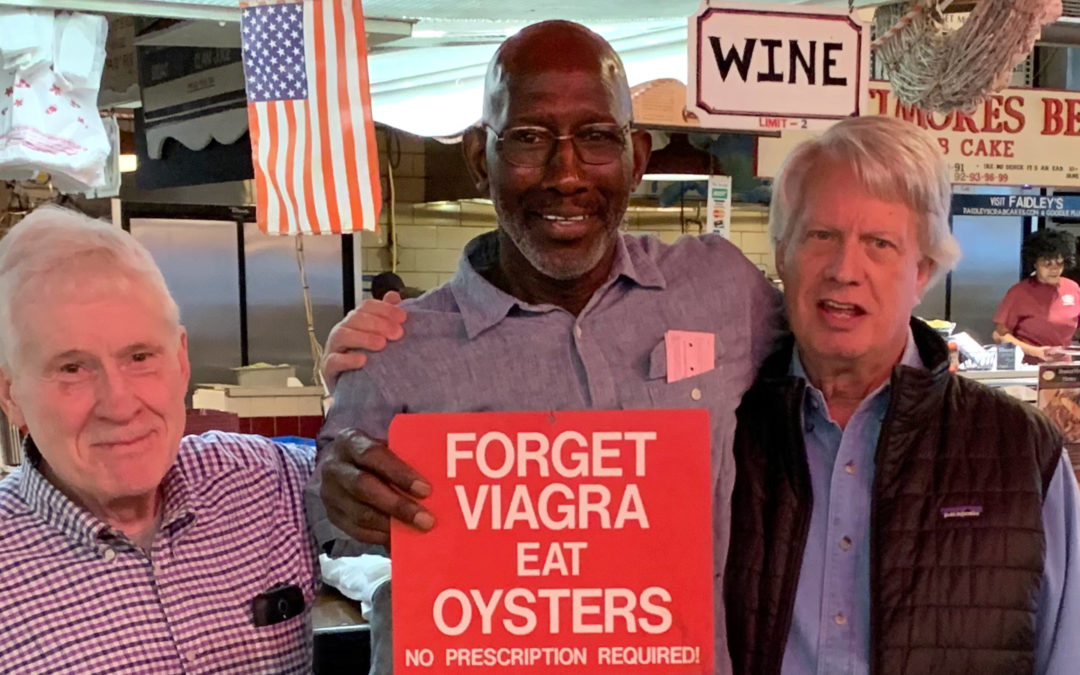Several years ago Professor Mike Millemann, on the left, contacted me to see if I wanted to help him fulfill a grant made to the University of Maryland Cary School of Law to teach law differently by using the theater.
We signed up Elliot Rauh, of Single Carrot Theatre and decided the class should write plays about prisoners who had been released from prison after they had been determined to be absolutely innocent after years of incarceration. One of those plays was about Michael Austin, at the center, who was imprisoned in Maryland for over 27 years for a murder he did not commit. He was freed through the brilliant legal work of Larry Nathans, Esq., of Nathans & Biddle.
Last week we got together again at Lexington Market in downtown Baltimore as a reunion of old friends to help Michael because Michael had just found out that due to a typo in his arrest record he was never exonerated and that has kept him from getting work. This will be resolved but the reunion between friends nonetheless was wonderful.
In Michael’s case, and in most of the cases that we turned into plays, the process was remarkably similar. On the first day of class we brought Michael in to meet the class and answer questions. He was calm, collected, and despite the injustice of his incarceration not angry but very wise. In prison he had perfected himself and along the way he had become quite a remarkable musician.
Throughout the following weeks of the semester, the first third of the class was used to do deep research on what went wrong and what led to his conviction. The class went through trial transcripts, records of an incompetent defense lawyer, and files of prosecutors that withheld evidence and a transcript recording of the judge that sentenced an innocent man to life in prison.
The second third of the class the students wrote the backstory, and in the third and final part of the class, Elliot Rauh taught acting and turned inexperienced law students into the actors of their own play which was performed before the law school.
Michael stayed with the class from the beginning. One of the students said that he should provide music for the play and he agreed. Another one of the students suggested that at the end of the play, Michael should leave his instruments behind and identify himself as the Michael Austin about whom the play was written. The audience gasped and some wept.
At first I thought this class might have limited value so we asked that the students provide a one minute clip to the people who had provided us the grant to state whether they thought the grant money had been used appropriately. I became convinced when one student faced the camera and said “I wrote the part of a defense lawyer who was unprepared, acted the part of the prosecutor who withheld the time card that would have exonerated him, and read the exact words 30 years ago when an innocent man was pronounced guilty by a state court judge in the circuit court of Baltimore city and sentenced to life and I have never been in a courtroom.”
At that point we were convinced that the class worked. People were learning from mistakes made before they were fatal. We taught the class for seven years and it was ranked as one of the most appreciated classes at the law school during that time.

